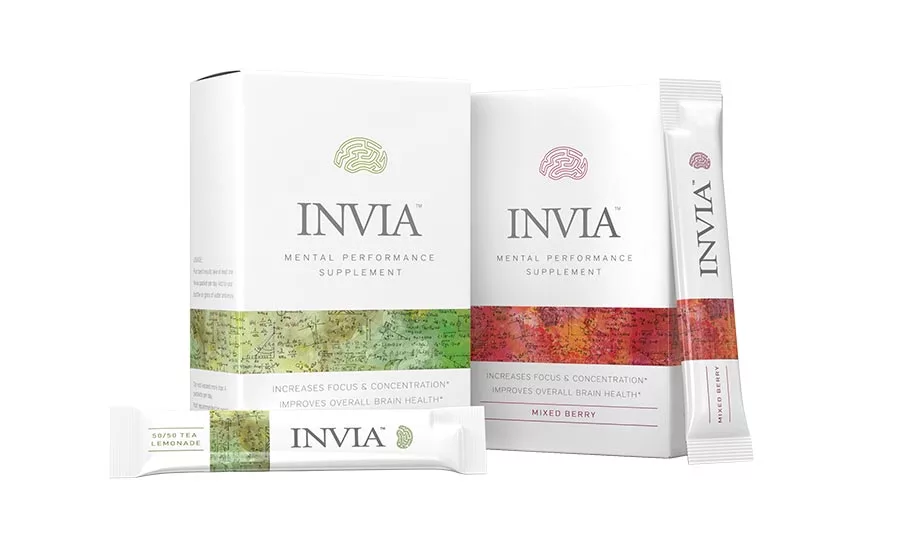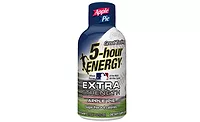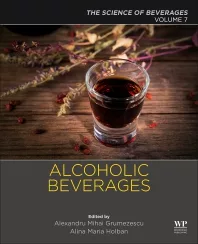Science-backed cognitive ingredients in demand for beverages
Consumers demand products that offer mental clarity, focus



Although the ad slogan, “A mind is a terrible thing to waste,” was developed in 1972 for the United Negro College Fund, it has since become part of the American vernacular. As consumers increasingly strive to improve their cognition and overall health and well-being, more products are being launched that target consumers’ need for improved memory, focus, concentration and mood, experts say.
They note that the human brain is a complex organ, and, as a result, consumers from all walks of life, including millennials, baby boomers and Generation Z, increasingly are looking for functional beverages to help maintain or boost healthy cognitive function and stave off memory-robbing diseases like Alzheimer’s.
Two main driving forces are contributing to the rise in cognitive health ingredients: food as medicine and a rise in diseases that lead to cognitive impairment, notes Ilana Orlofsky, marketing coordinator at Imbibe, Niles, Ill.
“Consumers, especially millennials and Gen Z, look to food to treat or prevent ailments because they have increased awareness and access to information on preventive healthcare,” she explains. “The baby boomers, who are now approaching 71, seek out cognitive health ingredients to help maintain healthy cognitive function and to stave off diseases, like Alzheimer’s, which affects one in nine people age 65 and older.”
Matt Phillips, vice president of business development at Bioriginal, Irvine, Calif., echoes similar sentiments. “Older consumers are concerned about maintaining cognitive function as they age. At the same time, millennials are entering their mid-30s and are looking for better mental focus as they try to deal with being productive at work and at home,” he says. “They are two different drivers, but both have increased the demand for ingredients that promote cognitive health.”
He notes that products like coffee paved the way for consumers to think of beverages as a delivery system that can support cognitive health.
“Today, there’s a huge desire by consumers for mental focus and clarity. Beverages are incredibly portable and convenient, and we know that busy consumers are looking for these two aspects,” Phillips says. “While we talk a lot about focus and clarity, it’s important to note that when it comes to the cognitive beverage trend, ingredients that help de-stress are also starting to gain traction.”
Jennifer Chu, chief science officer at AIDP Inc., City of Industry, Calif., also points to this trend. “Studies have shown that cognitive health begins to decline as early as age 25, since the brain is like a muscle that loses flexibility as it ages. At the same time, people are living well into their 80s and even longer,” she says. “The need for science-backed cognitive health support will only continue to grow. People who want to take supplements for cognitive health are looking for other options besides pills and those standard delivery systems.”
The growth in the functional food and beverage industries is an indicator that consumers want to get their supplements in delivery systems that also are a part of their lifestyle. “Beverages [are] a very popular format for things like energy ingredients. Beverages are now including ingredients to support other healthy functions, like cognitive health,” Chu adds.
Safety and efficacy also are important, and today an increasing number of functional ingredients in beverages tout generally recognized as safe (GRAS) status, says Bill Driessen, technical sales manager in the Americas for Minneapolis-based Taiyo International Inc.
“I would say that the rise of cognitive health ingredients and beverages is not the result of any trend,” Driessen says. “One could say that people have always had busy schedules, worked long hours, etc. The difference now is that there are more ingredients that are GRAS and have the research to demonstrate proven efficacy and safety.”
To help consumers feel relaxed, calm and mentally focused, the company offers Suntheanine, an ingredient that has been clinically proven to provide the desired relaxation benefit in a single, fast-acting dose that lasts for several hours, Driessen says.
Alleviating the effects of aging
With active ingredients often coming from natural sources like plants, produce or seeds, experts note that several ingredients are available in the market that can either offer cognitive health benefits or target overall brain health.
Popular cognitive health ingredients include L-theanine, an amino acid found in matcha and traditional green tea, which is thought to assist with relaxation, mood and focus; choline, a micronutrient and precursor to acetylcholine, a neurotransmitter critical to brain function, which is found naturally in foods like eggs, liver, salmon, cauliflower and brussel sprouts; and chia seeds, which are high in omega-3 fatty acids, Imbibe’s Orlofsky says. Yerba mate, taurine and guayusa also are options, she notes.
New York-based Kyowa Hakko USA’s Marketing Manager Elyse Lovett notes that B-complex vitamins, vitamin D and omega-3 fatty acids offer cognitive health benefits and “are well-studied in the brain health category.”
Citicoline, which is in every cell of the human body, also is a potent cognitive health nutrient, she says.
Kyowa Hakko offers a branded form of citicoline — Cognizin citicoline — that is clinically proven to support mental energy, focus and attention, the company says. It also is highly stable, GRAS, ultra-pure and allergen-free, Lovett notes.
In addition to citicoline, AIDP’s Chu names acetyl L-carnitine, huperzine-A, ginkgo biloba, phosphatidylserine, vinpocetine and resveratrol as ingredients that support cognitive health.
Due to the large number of ingredients associated with cognitive health benefits, Bioriginal’s Phillips suggests that manufacturers and consumers should think about the desired end result.
“In beverages, the most commonly used ingredients are water-soluble and have favorable organoleptic properties,” he says. “One of the most widely studied ingredients with cognitive health benefits are omega-3s: docosahexaenoic acid (DHA) and eicosapentaenoic acid (EPA). Studies have shown that DHA produces neuroprotective metabolites and prevents neurons from damage. This helps in cell-to-cell communication in the brain, leading to support of memory function, which is a highly sought benefit.”
Phillips notes that company research found that consumers who drank beverages fortified with OmegaPure fish oil either were unable to discern a difference or preferred the fortified sample. “That’s really a breakthrough with marine-based omega-3 fortification,” he adds.
Promising research
Ingredients in common fruits like blueberries and pomegranates also could help to boost cognitive function, experts say.
For example, phytochemicals found in fruits, such as blueberries, continue to be investigated for their health benefits in slowing the aging process, according to Tom Payne, industry specialist for Thomas J. Payne Market Development, the U.S. Highbush Blueberry Council, San Mateo, Calif.
“Studies of older laboratory animals consuming blueberry-supplemented diets have shown measurable improvements in memory, coordination and balance,” he says. “Research is also uncovering neuron regeneration in older animals fed blueberries. The role of blueberries is being studied rigorously in all these areas and just as rigorous is the concern that all claims for beneficial effects be supported.”
Science also is beginning to examine the potential impact of pomegranate polyphenols on memory and cognition in older adults, notes Adam Cooper, vice president of marketing at Los Angeles-based The Wonderful Co. LLC, who points to a 2013 UCLA study of older adults with age-related memory complaints.
“[T]hose who drank 8 ounces of pomegranate juice daily showed increased verbal memory performance and functional brain activity in MRI testing after just four weeks,” he says. “Although these early scientific findings are promising, … further research on larger populations is needed to determine the long-term effects of pomegranates on memory and cognition.”
As consumers look for beverages with functional ingredients, beverage formulators have a wide range of cognitive-boosting systems at their disposal. For example, AIDP offers Magtein, a proprietary formulation of magnesium L-threonate that has been shown to effectively raise the brain’s magnesium levels, leading to enhanced learning abilities, working memory, and short- and long-term memory in both young and aged animals.
“In four published preclinical studies, Magtein was found to improve memory and help prevent the decline and reverse the symptoms of Alzheimer’s,” states AIDP’s white paper titled “A Science-Based Discussion of the Role of Magtein.”
Chu adds, “Magetin works great in [ready-to-drink] (RTD) beverages such as coffees, teas and smoothies — it’s solubility and the fact that it has no effect on taste or texture makes it perfect for any beverage formulation.”
In the beverage market, functional beverages are a great fit for cognitive health ingredients, Kyowa Hakko’s Lovett says. “Products that can be kept at your desk to provide that extra focus during one’s work day,” she says. “Sports nutrition is a great category to include cognitive health ingredients for that jolt of mental energy as well as focus and concentration while playing your favorite sport.”
Taiyo’s Driessen points to the energy drinks segment. “In a way, consumers consider energy drinks to be cognitive beverages because energy drinks stimulate and make us feel alert,” he says. “However, it can be said that not everyone wants an energy drink. … More specifically, there is space in the beverage market for beverages that make consumers feel mentally focused, calm and relaxed.”
When formulating beverages with cognitive health ingredients, AIDP’s Chu notes the importance of maintaining an ingredient’s integrity.
“[M]aking sure the ingredient’s effectiveness is not compromised through the formulation process, that there will be no negative interactions with the rest of the ingredients, and that the ingredients will not alter the taste or texture of the beverage is crucial,” she says.
With consumer interest in cognitive health proliferating and support from ingredient suppliers, the future looks bright for cognitive health ingredients, experts say.
“The market is gaining traction and could see impressive growth, particularly with innovative formulations and ingredients,” Biorignial’s Phillips says. “This could be in a variety of liquid formats, such as shots, beverages, tinctures, liquid concentrates, etc. We are already seeing a growth surge in the shots delivery format.
“Consumers want the total package — taste and efficacy,” he continues. “They want to know that what they are investing in is actually working. Often people pay a premium for these products, so companies would do well to remember all of these pieces when trying to create something that will have longer-term staying power on the market.”
Looking for a reprint of this article?
From high-res PDFs to custom plaques, order your copy today!






